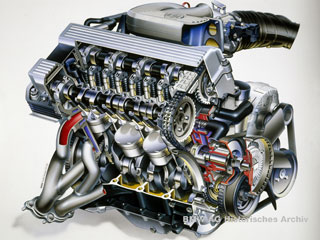Updating Your BMW 318ti: Leading Mods and Enhancements
Updating Your BMW 318ti: Leading Mods and Enhancements
Blog Article
Vital Considerations for Picking the Best Engine for Your Requirements
In the realm of choosing the optimal engine to fulfill your needs, several important aspects need thorough factor to consider to make certain optimal performance and effectiveness. From the nuanced balance between power and efficiency to the often-overlooked facets of upkeep and service needs, each facet plays a critical function in figuring out the most ideal engine for your specific needs.
Power and Performance
When assessing engines for ideal performance, it is important to focus on both power output and effectiveness. Power outcome determines the capability of an engine to generate energy, which straight influences its performance. A high power output is vital for demanding tasks such as high-speed requirements or sturdy applications. It ensures that the engine can handle the work effectively and efficiently. Nevertheless, power alone is not adequate; efficiency plays a considerable role in identifying the overall efficiency of an engine. Performance refers to how well the engine converts gas right into usable power. A a lot more efficient engine will certainly supply much better mileage, reduced discharges, and reduced operating prices. Striking the ideal balance in between power outcome and performance is crucial to selecting an engine that fulfills your details requirements. It is important to take into consideration aspects such as the planned use the engine, ecological impact, and long-term expense implications when making this choice. By very carefully evaluating both power and effectiveness, you can choose an engine that provides optimum performance and meets your needs efficiently.
Fuel Performance and Economic Climate
In the world of engine choice, the consideration of gas performance and economy holds critical value. Gas effectiveness refers to the engine's capability to transform gas right into power with marginal waste, directly affecting operating expense and environmental sustainability. bmw 318ti. When choosing an engine, reviewing its gas economic situation is important to identify long-lasting savings and environmental influence. Engines with greater gas performance not just reduce gas expenses but also decrease carbon emissions, contributing to a greener procedure.

Compatibility and Application
Considering the gas effectiveness and economy of an engine, the following important facet to address is its compatibility and application within certain operational contexts. Compatibility refers to just how well the engine integrates with the overall system or devices it powers. It entails elements such as physical measurements, mounting alternatives, electric user interfaces, and control systems. Making sure compatibility is necessary to prevent problems such as getting too hot, vibrations, or power discrepancies (bmw 318ti).
In addition, the application of the engine is equally crucial. Various engines are designed for certain purposes, whether it be industrial equipment, marine vessels, autos, or power generators. Understanding the useful content designated application enables the option of an engine that can supply the needed power output, torque, and functional attributes. A high-revving engine developed for efficiency cars would not be appropriate for durable building devices that needs high torque at low speeds.
Upkeep and Solution Demands
Maintenance and solution requirements play a crucial duty in guaranteeing the longevity and optimum performance of an engine. Normal maintenance is necessary to protect against break downs, prolong the lifespan of the engine, and maintain its performance. When choosing an engine, it is crucial to take into consideration the manufacturer's recommended maintenance routine and the availability of service facilities or certified technicians.
Elements such as the frequency of oil adjustments, filter replacements, and overall examinations can substantially influence the engine's efficiency. Some engines might call for even more constant servicing based on their style and use, while others might have longer intervals between maintenance checks. It is crucial to abide by these service demands to prevent expensive repair services and unanticipated downtime.
Expense and Budget Considerations
Spending plan restrictions typically play a significant role in the decision-making process when selecting an engine for a certain application. When thinking about the price and budget plan effects of selecting an engine, it is important to evaluate not only the first purchase rate however additionally the long-term expenditures related to upkeep, fuel consumption, and potential upgrades or repair services. It is essential to strike an equilibrium in between the upfront expense of the engine and its general lifecycle prices to guarantee that the picked engine remains economically sustainable throughout its operational lifespan.
Elements such as gas resilience, reliability, and performance can directly influence the complete cost of possession of an engine. While an extra pricey engine may have greater in click reference advance costs, it can potentially result in reduced maintenance and fuel expenditures over time, thus using better worth in the long run.
Verdict

Gas performance refers to the engine's ability to transform gas into energy with marginal waste, directly affecting operating prices and ecological sustainability.Elements affecting gas efficiency include engine style, burning efficiency, and overall performance optimization. In addition, selecting the suitable gas kind and quality as recommended by the engine producer can additionally boost performance and prolong engine lifespan.
Engines with great use attributes and readily available parts can decrease maintenance expenses and lessen the time the engine is out of procedure - bmw 318ti. It is crucial to strike a balance in between the upfront cost of the engine and its overall lifecycle costs to make sure that the selected engine stays economically sustainable throughout its operational lifespan
Report this page